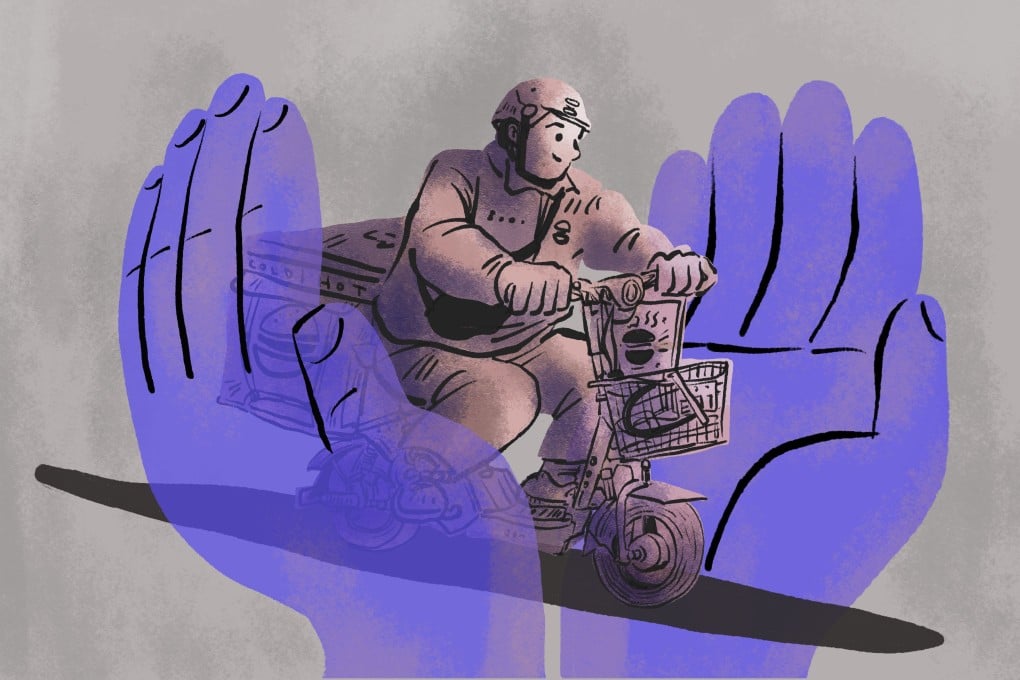Beijing continues to push labour protections as China’s delivery couriers battle ‘dehumanised’ algorithms in fight for survival
- Delivering food or parcels is a common choice for migrant workers, thanks to huge demand, low barriers to entry and flexible terms
- Beijing has urged China’s internet platforms, including Meituan and Ele.me, to enhance protection of gig workers by improving welfare coverage

Hu Yuchen, a migrant worker from Jiangxi who works in Shanghai as a delivery man, said he usually has only half a day off per month.
Hu says he originally had a 200,000 yuan (US$31,400) debt to pay, meaning he had no option but to toil all day and every day when he started as a delivery courier three years ago. But after his debts were cleared, he found himself stuck in this arduous routine.
This year, he is even giving up the most important holiday of the year, the Lunar New Year, to continue delivering items to collect an extra bonus.
“If I don’t go home for the Lunar New Year, I can get more than 10,000 yuan for continuing to deliver items. But if I go home, I’ll only earn a few thousand yuan,” said Hu, who was wearing a blue outfit with a helmet emblazoned with the logo of Ele.me, the on-demand delivery services platform owned by Alibaba Group Holding.
“Time is very tight, just look at my orders. This 30-minute order means I need to drive 1.6 kilometres to get to the restaurant, wait for them to prepare it … then drive two more kilometres to deliver the food to the customer,” he added.
Suddenly a new order arrives, read out by a female voice on his mobile phone. Hu rushes to his electric bike complete with a blue top box, the vehicle of choice for serious delivery riders, jamming his phone into a holder attached to the two-wheeler. He speeds off into the distance before disappearing round a corner, leaving a slight trail of dust behind.